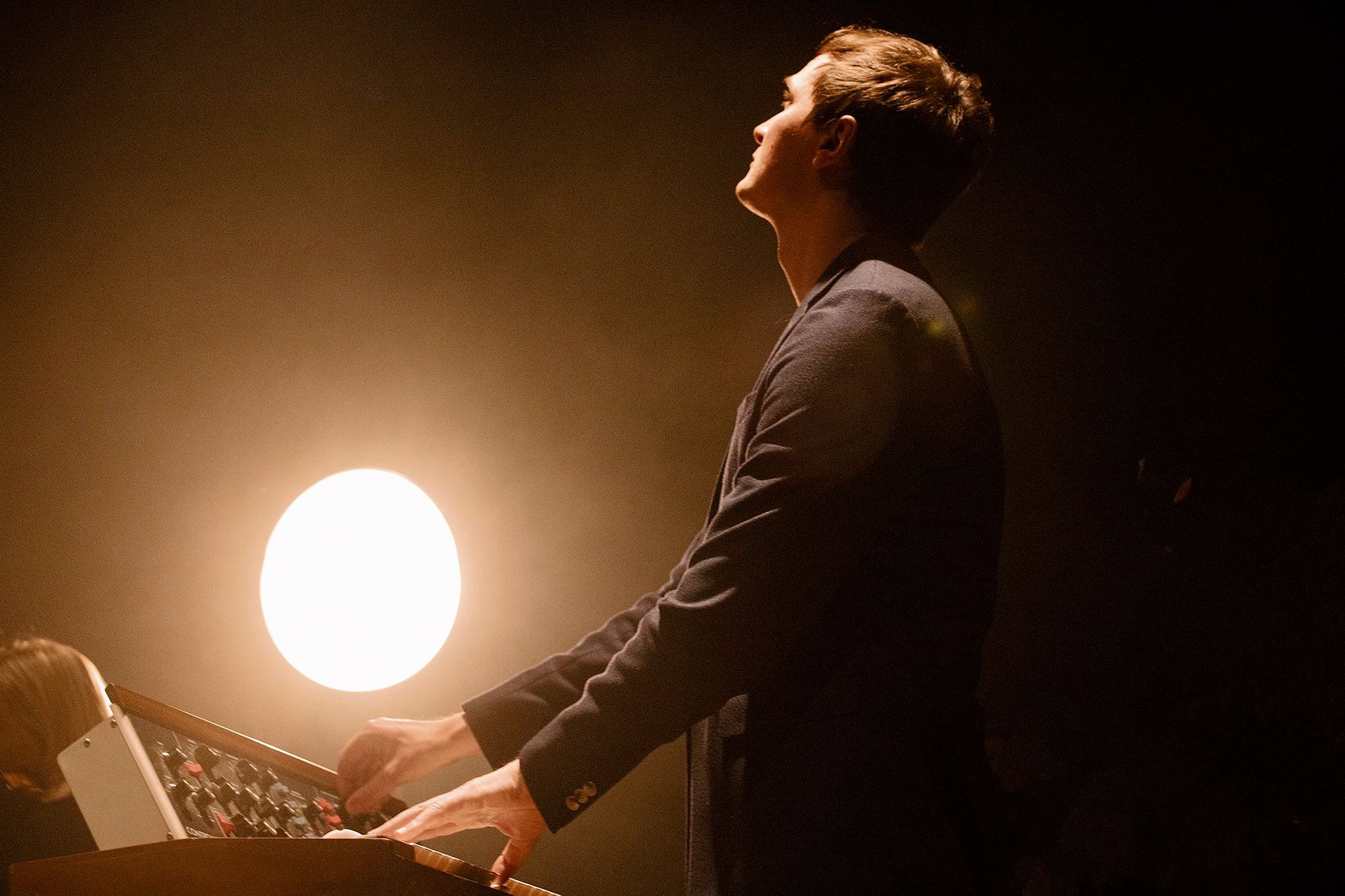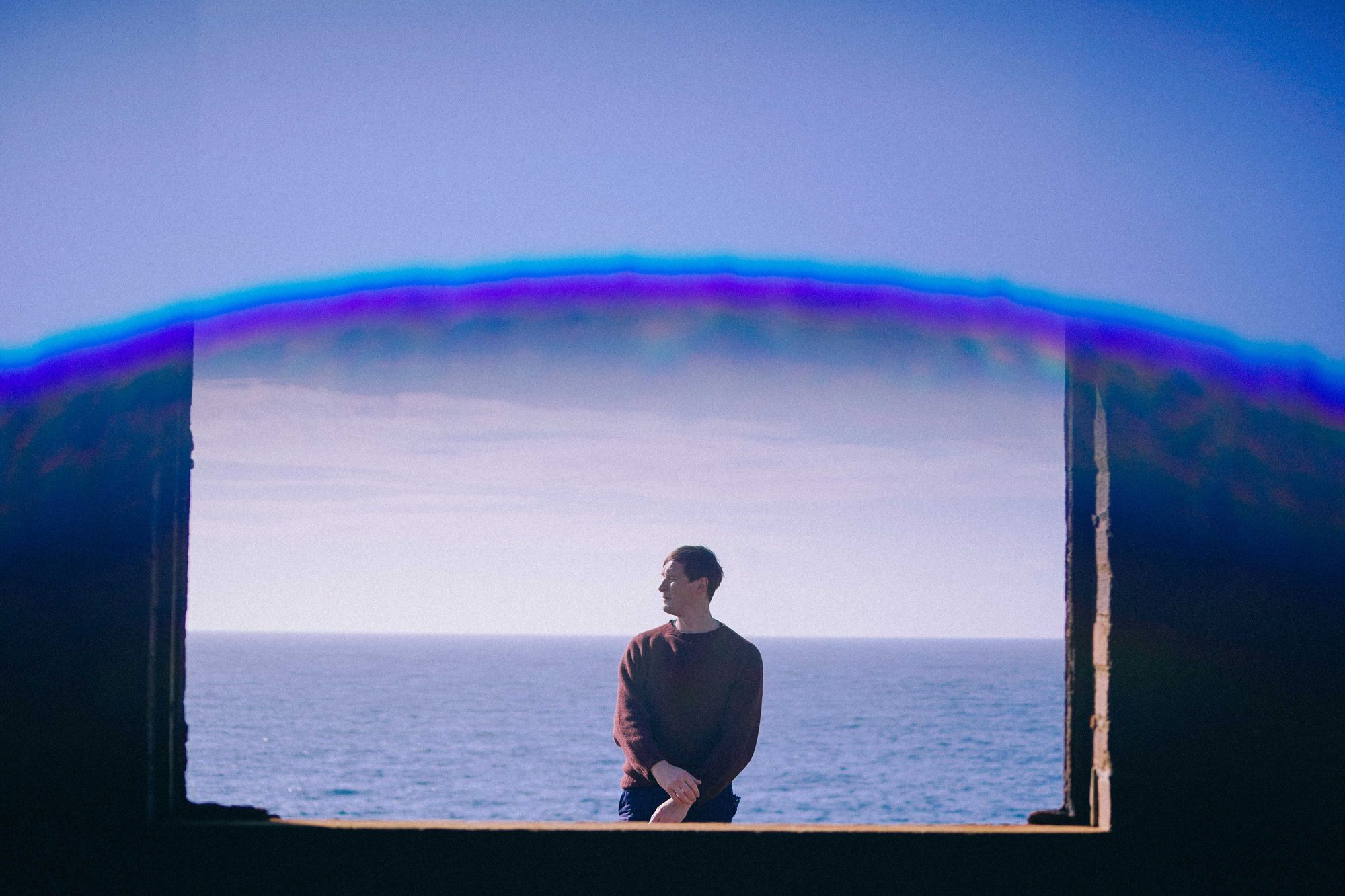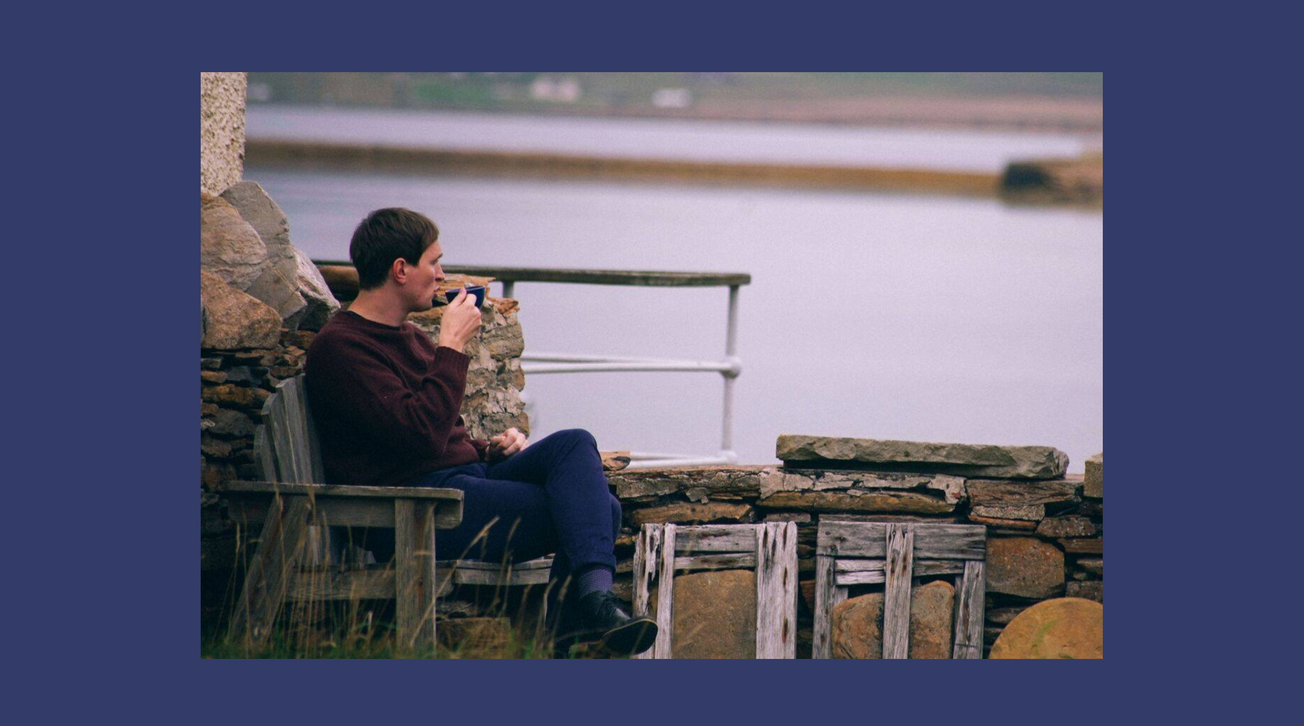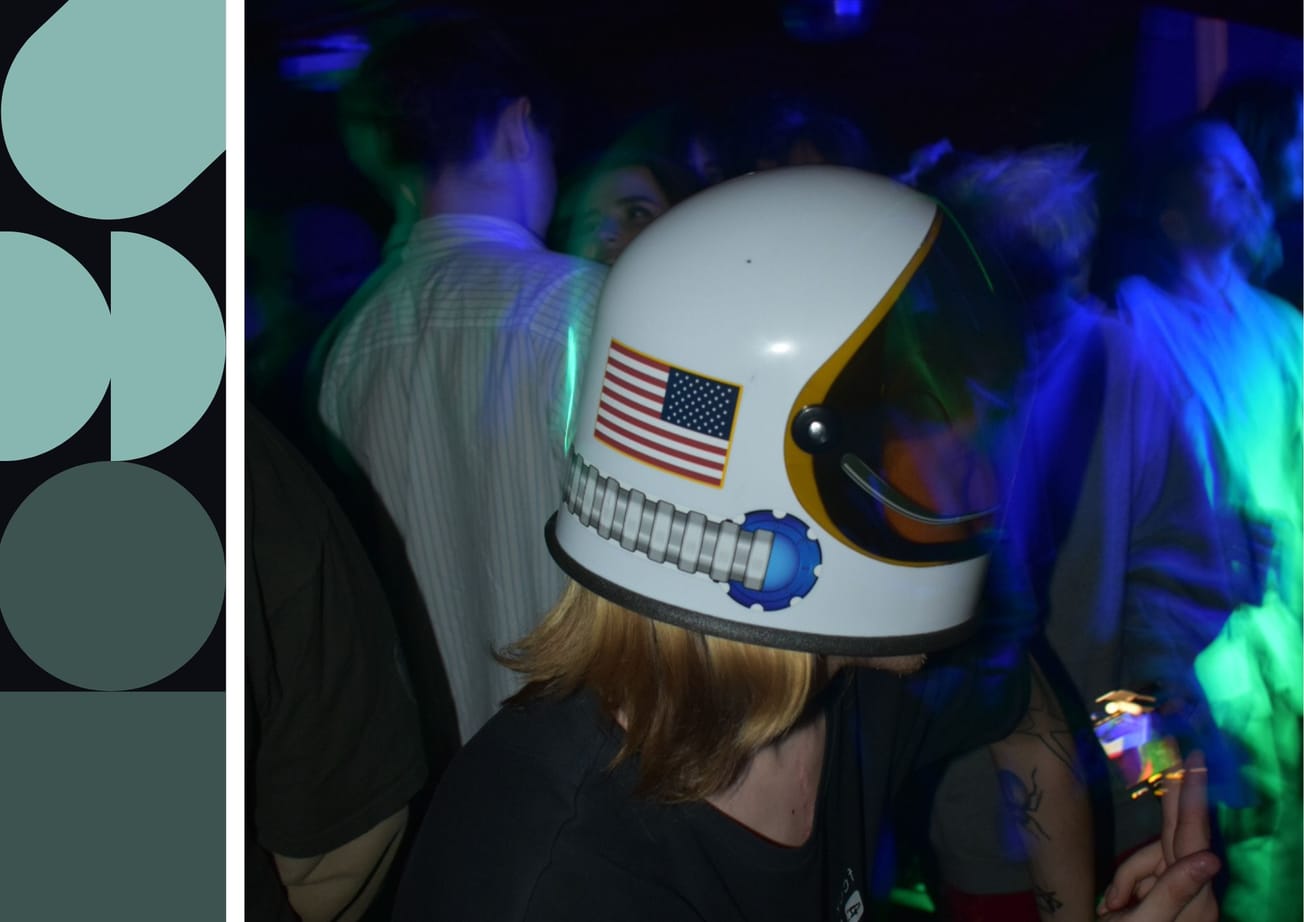By Guy Marcham, Deputy Music Editor
‘Someone asked me what’s the best thing about Orkney and what’s the worst. I can probably answer both in just one sentence – it’s a rock surrounded by the North Sea’.
This rock is the setting for Erland Cooper’s subtle myriad of classical compositions, ambient drones and transcendent electronica. What Cooper himself describes as a ‘little bit of gentle music with feathers and birds.’ An ambitious project to capture the essence of the Scottish Island through the medium of music.

I speak to Cooper on a sodden and miserable morning in early November. With the rain lashing on the side of my window – I am suddenly transported to an entirely different realm. A comforting and blissful form of escapism, sound tracked by Cooper’s soothing Scottish voice and his idyllic portraits of the island he grew up in. I ask him to describe the island of Orkney to me which he does so as if writing a twee novel – an emotive way with words for a man who chooses instrumental compositions to convey his thoughts and feelings.
‘It’s the sky, it’s the light, it’s the colours that dominate, the air feels different, the longitude, the latitude, its proximity to Scandinavia, the community, culture, its independent – just does its own thing. It’s local and clings on. It feels relatively unchanged – farming and fishing are still major industries. There are loads of Neolithic sites. It’s got the most gorgeous, beautiful coastline where you can spot seabirds, gannets and seals in abundance. The wildlife is just incredible. I think it’s the big sky and the colour or the different colours that are incredible to me. It feels like nowhere else on Earth.’
Cooper is currently in the middle of releasing the third and final set in his trilogy of solo albums surrounding the island of Orkney. A project which is based on a poem by George Mackay Brown, in which the poet focuses on the majesty of the sea, air and land. Cooper’s trilogy of albums plans to follow suit – 2018’s Solan Goosefocused on the air and the birds that give life to the island while this year’s Sule Skerry illuminated the majesty of the sea and the waves that crash against the islands ragged edges. The third piece in Cooper’s awe-inspiring trilogy is expected to land next year.
The composer is no stranger to the island of Orkney, growing up and living there till the age of 18. He now writes from his home in London, a bustling city landscape a million miles from the isolated island and its surrounding terrain. ‘I keep writing these records about Orkney because I miss it. I enjoy the city, but I like to take from the city what I can before it takes everything from me. To do that, I need to escape, I need to disconnect. I do that in my head, but I also do that physically by getting a wee ferry home.’ Cooper carefully confides that ‘escapism in nature, landscape or the sea is the one true reset – it just flatlines me.’
For Cooper, the act of transporting yourself back to a simpler time, that of your childhood self where ‘you thought less about other things and had a very singular focus’ – is somewhat therapeutic. ‘To unwind and disconnect from the pace of connectivity. People are finding out for themselves how important it is to disconnect to reconnect (…) people will be surprised how they feel when they just stare at the sea. It will feel like a connection.’
I ask Cooper about his childhood on the island and how it must have been for child surrounding yourself with pristine beaches, rock faces and the sense of freedom that coincides with natural open space. Yet for Cooper, the island was something of a prison that he wrestled with in his younger years – eager to break free and explore the outside hustle and bustle of the city. ‘You’ve got to remember that the grass is always greener. It wasn’t till 18 when I left and went to New York City – it blew my mind (…) as a kid you can’t wait to leave because you don’t have all the things all the kids in films, books and on TV have. From bowling alleys to big cinemas. You want to escape.’ Now, Orkney holds a special place in Cooper’s heart – a unique upbringing that Cooper wouldn’t swap for the world. ‘The older I get the more fondly I want to return (…) I had it all on my doorstep – within seconds I could throw a stone from my door into the sea and explore that. I realise now that the island kind of holds you.’

Cooper spoke frankly about his desire to escape Orkney in his younger days, yet it was on the island that his love for music truly blossomed. Cooper recounts a funny anecdote about his desire to play music and use it as a creative outlet while living there. ‘My father was the deputy head of the school, so I used to steal his key to break into the school to use the music room while all my mates were playing football. I was literally figuring out how to play guitar, piano, tapes machines, recorders, computer, midi. I was breaking into the school to do that. I realise how mad this is now but that’s the truth of it. I didn’t know anyone who was interested in the same thing (…) I would dissect songs from Nirvana to Noel Gallagher and break them down and figure out how they were arranged and built. Then I got caught – my dad said, “why didn’t you just ask?” – a bloody good point.’
Cooper has changed very little from his 14-year-old self – still just as addicted to carving out new soundscapes and playing with new instruments and recording techniques from electronic flickers to lush classical strings. ‘It’s so funny because I use cassettes now instead of Ableton Live, I use continuous ambient tape loops. I don’t use a computer, I just use these four tracks. I realised that was what I was doing aged 14 – I was using cassettes and making recordings. Doing that now, it pulls me back to being a kid again.’
Cooper is clearly blessed with an inquisitive mind from sneaking into the school’s music room at an early age and to now ‘capturing field recordings’ of Orkney, whether they be interviews with oral historians, fisherman or the weather and the voices of the birds and sea.’ This inquisitive mind is central to Cooper’s musical compositions – capturing an essence of Orkney – the wildlife, natural scenery and livelihood of those who call it home. With an upcoming tour starting this month – Cooper seems just as excited now as to when he first unlocked the door to the school music room with his stolen set of keys.
‘Folks seem to kind of want to be transported to a different place – and that place is Orkney at the moment. So, I’ve been really encouraged.’ Cooper speaks gleefully about playing unique venues across Britain - ‘I like to play unusual spaces.’ ‘We played a wetland centre and just as we sat down to play ‘Solan Goose’ these geese flew overhead. It was quite surreal.’
Cooper’s wide-eyed love for the outside world is clear. I ask if he would describe himself as at one with nature to which he chuckles. ‘Someone called me nature boy – “nature bird boy conductor”. Call me what you want.’ It would be silly to pigeonhole Cooper as only concerned with nature. His music extends far further than just capturing the essence of Orkney and its bucolic terrain but too encompasses a sense of memory, escapism, exploration and meditation. ‘The voyeur I me is intrigued about exploring – going elsewhere.’
Featured Image: Ian Cheek Press







